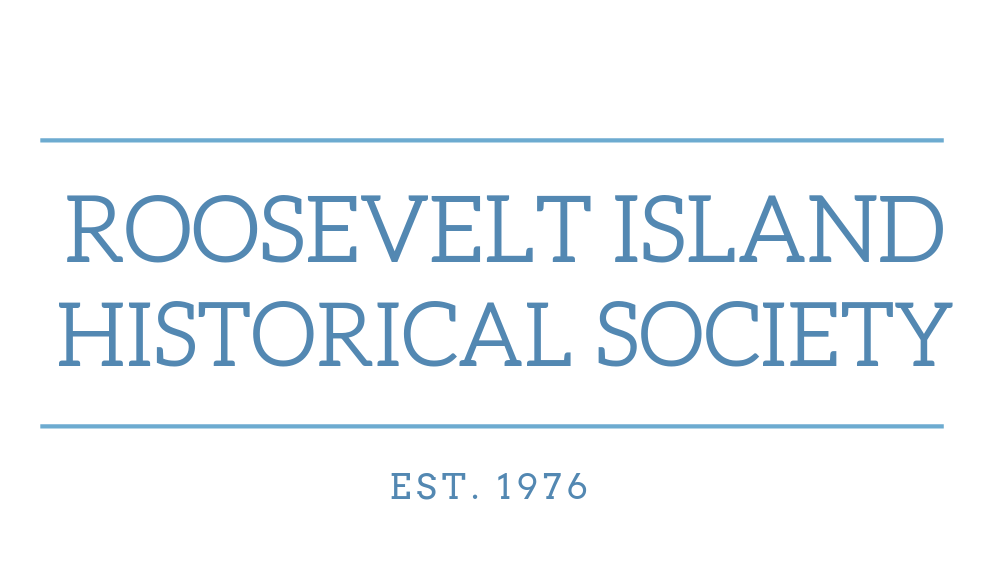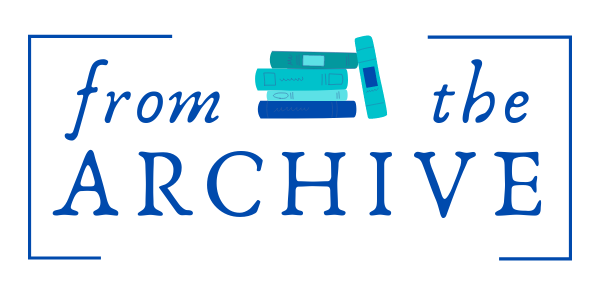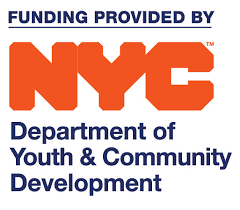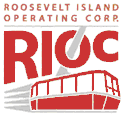Friday, July 1, 2022 – THE GRAND LADIES OF THE HIGH SEAS GOT ROYAL WELCOMES


FROM THE ARCHIVES
717th Edition
The Blue Riband:
New York City and the Superliners
Kenneth R. Cobb
New York City Municipal Archives

The Normandie on the Hudson River, 1935. WPA Federal Writers’ Project photograph collection. Photographer: Bofinger. NYC Municipal Archives.
“Millions Greet Normandie Here” read the headline in the New York Daily Mirror on June 4, 1935. Considered by many to be the most beautiful ocean liner to ever ply the seas, the French luxury ship Normandie won the Blue Riband for her record-breaking transatlantic maiden voyage to New York, arriving in four days, eleven hours, forty-two minutes and two seconds. The Blue Riband is an unofficial honor awarded to the fastest passenger liner crossing the Atlantic Ocean.

Cunard ocean liner Queen Mary at Pier 90. The tremendous speed of the superliner during its transatlantic maiden voyage scraped paint from its hull along the water line, June 2, 1936. Manhattan Borough President photograph collection. NYC Municipal Archives.
One year later, on June 1, 1936, throngs of New Yorkers again cheered as another new ocean liner on her maiden voyage, the Queen Mary, slid into a berth at Pier 90, on Manhattan’s West Side. Although heavy fog delayed the British Cunard ship, the Queen Mary would wrest the Blue Riband from the Normandie in another transatlantic voyage just two months later, on August 24, 1936.
The huge press attention to the arrival of these new superliners, and the massive official receptions coordinated by the Mayor’s Office attest to the importance of maritime activities for the city’s economy.

By the mid-19th century, the port of New York handled more goods and passengers than all other ports in the country combined, and by 1912 it became the busiest in the world. The Department of Docks photograph collection includes numerous large-format glass-plate negatives that depict the intense commercial activity along both the East and North (Hudson) River waterfronts. West Street, ca. 1890. Department of Docks Collection. NYC Municipal Archives.
In July 2020, the blog New York’s Working Waterfront introduced some of the collections that document the city’s investment in its port and harbor facilities. This week, For the Record will continue to identify useful resources in the Municipal Archives and Municipal Library for researching this essential topic in New York City history.
The Normandie docked at Pier 88 at West 48th Street, and the Queen Mary at Pier 90, at 50th Street. Along with Pier 92, at 52nd Street, these facilities had been constructed specifically to accommodate the new superliners arriving from Europe. The piers later became known as “luxury liner row.”

Pier 56, Chelsea Section, 1908. Department of Docks and Ferries photograph collection. NYC Municipal Archives.

Chelsea Section Piers nearing completion, 1908. Department of Docks and Ferries photograph collection. NYC Municipal Archives.
Correspondence in Mayor LaGuardia’s papers helps tell the story. In a letter to the Mayor dated June 3, 1935, Percy Magnus, President of the New York Board of Trade wrote, “You may recall that for many years the City made efforts to revise the pier-head line in the North [Hudson] River. We knew at that time that France, England, Germany and Italy all planned to build new superliners, and we also knew that the length of the Chelsea piers was totally inadequate. The City was forced to face the disconcerting fact that its Port facilities were not modern.”
What Mr. Magnus did not mention was that the Chelsea Piers he referenced had also been specially constructed to accommodate the first generation of big new ocean liners coming from Europe after 1900. Sometimes referred to as the “Titanic-class,” these new ships quickly dominated the lucrative transatlantic market. To maintain its competitive edge, the City built a series of new piers along the Hudson River waterfront from West 17th to West 23rd Streets.

Chelsea Section Piers, typical elevation of piers 54 and 56, 1908. Department of Docks drawings collection. NYC Municipal Archives.

Ocean liner Olympic arriving at Pier 59, Chelsea Section, June 22, 1911. Department of Docks and Ferries photograph collection. NYC Municipal Archives.
The Municipal Archives’ collection of architectural drawings from the Department of Docks, and related photograph series, provide extensive visual documentation of the construction of the Chelsea Piers. The architectural flourishes on the pier sheds (designed by Warren & Wetmore, architects of Grand Central Terminal), were lost during “modernization” work in the 1970s and 80s. But their original facades can be seen in photographs taken by the Department of Docks staff during construction – all digitized and viewable in the Archives gallery.
United States War Department regulations restricted the City from building pier structures too far into the Hudson River. Consequently, the Chelsea Piers, and later the new piers between West 48th and West 52nd Streets required digging into Manhattan land to accommodate their extra length. The resulting alteration to the waterfront is visible in another important collection in the Municipal Archives, the Waterfront Survey Maps. New York City is an archipelago of islands and the waterfront series provides incredibly detailed surveys of every inch of the city’s 520-mile shoreline. The entire series has been digitized and is available to research in the gallery.

The Waterfront Survey Maps were created by the Department of Docks beginning in the 1870s and updated to the mid-20th century. Plan of North River Improvement Between W. 46th St. and W. 58th St., Borough of Manhattan, 1931. Waterfront Survey Map collection. NYC Municipal Archives

Piers 88, 90 and 92, 1936. Department of Docks and Ferries photograph collection. NYC Municipal Archives.
Construction of the piers needed for the second generation of superliners almost didn’t happen. The Department of Docks Annual Reports in the Municipal Library pick up the story. The 1934 report (submitted to the Mayor in 1935), began by noting that “ …the year 1934 saw the resumption of work on the Trans-Atlantic Pier Terminals… which was temporarily delayed in 1933, due to a lack of appropriations. The new Administration was quick to realize the importance of completing this Terminal for the accommodation of the new superliners of the British, French and Italian Lines, and thereupon immediately opened negotiations with the Federal Government to secure the necessary funds. These negotiations resulted in the approval of the project by the Public Works Administration.”

Press attention surrounding the arrival of the Queen Mary included tracking progress of the liner’s entry into New York Harbor from the air. William S. Paley, President, Columbia Broadcasting System, to Mayor Fiorello LaGuardia, May 26, 1936. Mayor LaGuardia collection. NYC Municipal Archives.
In other words, President Roosevelt’s New Deal came to the rescue with funding through the federal Public Works Administration (PWA). The 1935 Docks Department report explained that “…great efforts had to be extended to have this pier [88] in readiness” for the maiden voyage of the Normandie and concluded “… the efforts of the Department of Docks in this connection earned the commendation of the high officials of the French Line.” The Dock Department reports and correspondence in the Mayor LaGuardia papers provide descriptions of all the new features of the new pier facilities. Part of the impetus for the new structures was to enable steamship companies to unload and reload these massive ships as quickly as possible. A memorandum to Mayor LaGuardia dated May 23, 1935, is illustrative: “The pier and shed structures are modern in every particular and provided with office enclosures, passenger waiting rooms, baggage and passenger elevators, sprinkler systems, heating, plumbing, water supply and electrical appliances, escalators and baggage conveyors.” Turning again to Mayor Fiorello LaGuardia’s papers, the substantial volume of material regarding the preparations to welcome the new super liners also reflect the importance of maritime activities. Planning for the arrival of the Queen Mary generated three fat folders in LaGuardia’s subject files, and another folder holds the correspondence for the Normandie reception. In both instances, the Mayor organized welcoming committees of prominent New Yorkers: Jay P. Morgan, John D. Rockefeller, and Cornelius Vanderbilt received invitations to the Queen Mary celebrations. As the arrival date for the Queen Mary grew closer, however, the Mayor’s office let the committee members know that “Because the British people are still in mourning for the death of the late King George V., there will be no official representative of the British government aboard the ship. For that reason there will be no official banquet by the City of New York on this occasion.” View fullsize

The banquet planned to celebrate the arrival of the Queen Mary was canceled, but Mayor LaGuardia did accept an invitation to dine aboard the Queen Mary, 1936. Mayor LaGuardia Collection. NYC Municipal Archives.
As noted in several For the Record posts featuring Mayor LaGuardia’s papers, his correspondence is not only voluminous, but also rewarding in what it reveals about his work ethic and attention to detail. It is apparent that he read, and answered, most letters received in his office. The files regarding the Queen Mary reception are no exception. Carefully preserved in folder no. three is a letter from Mrs. W. S. Hilles, of Wilmington, Delaware. On May 24, 1936, Mrs. Hilles wrote to Mayor LaGuardia to ask why no women were appointed to the Mayor’s Reception Committee for the Queen Mary. On June 10, LaGuardia replied: “Your point is well taken. I certainly agree with you that women are as capable of serving upon committees of all kinds as are men.” He added, “But in the naming of this particular committee there were certain practical reasons why women could not be named, which were insurmountable because they were not of our making.” LaGuardia explained that the function of the committee was to go aboard the Queen Mary to greet the captain. However, “…Federal rules do not permit women to board a liner from a cutter because of the danger involved. He concluded: “It so happened that because of the great height of the Queen Mary the Federal rule against women boarding liners from cutters was somewhat justified by the fact that the committee members had to climb a twenty foot rope ladder to reach the lowest open hatch of the liner. I hope you will understand the situation.” There was not a reply from Mrs. Hilles.

The Normandie at Pier 88, 1935. Department of Docks and Ferries photograph collection. NYC Municipal Archives.
Take a moment to view the photographs and maps in the Municipal Archives gallery, and explore the Collection Guide to learn more about the City and its maritime history.
FRIDAY PHOTO OF THE DAY
SEND YOUR ANSWER TO:
rooseveltislandhistory@gmail.com

THURSDAY PHOTO OF THE DAY
Former Seaview Hospital, not senior housing
on Staten Island

All image are copyrighted (c) Roosevelt Island
Historical Society unless otherwise indicated:
Sources
Kenneth R. Cobb
Assistant Commissioner at NYC Department of Records
NEW YORK CITY MUNICIPAL ARCHIVES
RIHS (C) FUNDING PROVIDED BY ROOSEVELT ISLAND OPERATING CORPORATION PUBLIC PURPOSE GRANTS CITY COUNCIL REPRESENTATIVE BEN KALLOS DISCRETIONARY FUNDING THRU DYCD


Copyright © 2022 Roosevelt Island Historical Society, All rights reserved.Our mailing address is:
rooseveltislandhistory@gmail.com

Leave a comment